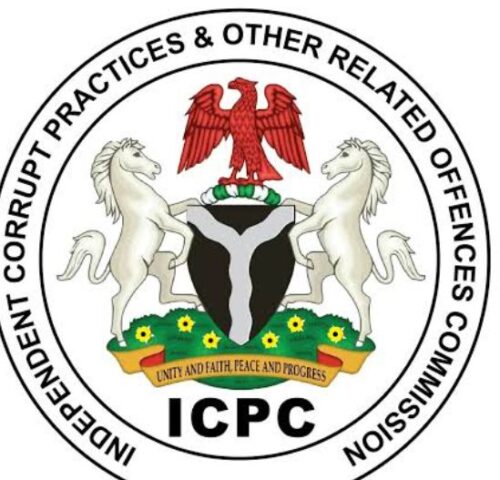The Chairman of the Independent Corrupt Practices and Other Related Offences Commission (ICPC), Dr. Musa Adamu Aliyu, SAN, has reiterated that corruption in Nigeria extends beyond the act of stealing public funds, stressing that “any deviation from the rule or due process” constitutes corruption.
By Chimezie Godfrey
The Chairman of the Independent Corrupt Practices and Other Related Offences Commission (ICPC), Dr. Musa Adamu Aliyu, SAN, has reiterated that corruption in Nigeria extends beyond the act of stealing public funds, stressing that “any deviation from the rule or due process” constitutes corruption.
Dr. Aliyu made this assertion in Abuja while presenting a paper titled “Understanding Anti-Corruption Laws and Their Implications for Local Government Officials” at the 2025 National Summit of the Association of Chairmen of Local Government Service Commissions in Nigeria.
The summit, themed “Strengthening Local Government Administration in Nigeria,” brought together stakeholders from across the federation to deliberate on reforms aimed at deepening accountability, transparency, and service delivery at the grassroots level. The two-day event held at the Maryam Babangida National Centre for Women Development featured policymakers, administrators, and anti-corruption experts.
Represented by his Special Assistant on Legal Matters, Mrs. Zainab Nass, the ICPC Chairman stated that corruption is pervasive and not limited to the public sector, noting that it also thrives in schools, markets, and private institutions.
Citing the World Bank’s definition of corruption as “the abuse of public office for private gain,” Dr. Aliyu explained that corruption manifests through greed, illegality, and the subversion of due process that denies citizens their rights.
“Corruption is not just about stealing money; it is anything that deviates from the rule. It is corruption not to follow due process,” he declared.
The ICPC Chairman urged Nigerians to uphold integrity, transparency, and adherence to the rule of law in both public and private life, emphasizing that sustainable national development can only be achieved when citizens and institutions act responsibly.
Reflecting on Nigeria’s long history of anti-corruption campaigns since independence, Dr. Aliyu recalled initiatives such as the Ethical Revolution, War Against Indiscipline and Corruption (WAIC), and Mass Mobilization for Self-Reliance, Social Justice and Economic Recovery (MAMSER). He noted that these efforts failed to produce lasting results largely because they lacked legal backing and institutional continuity.
He, however, identified the establishment of the ICPC under the Corrupt Practices and Other Related Offences Act, 2000 as a major turning point in Nigeria’s anti-corruption drive, providing a robust legal framework for investigation, prevention, and prosecution.
Dr. Aliyu further explained that ICPC’s mandate rests on three key pillars — enforcement, prevention, and public education — and that the Commission has institutionalized measures such as Corruption Risk Assessments, Systems Studies and Reviews, and the establishment of Anti-Corruption and Transparency Units (ACTUs) across Ministries, Departments, and Agencies (MDAs) to entrench accountability in governance.
He also reaffirmed Nigeria’s commitment to international anti-corruption standards, including the United Nations Convention Against Corruption (UNCAC), Financial Action Task Force (FATF) standards, and the African Union Convention on Preventing and Combating Corruption (AUCPCC).
Addressing local government officials directly, Dr. Aliyu reminded them of their legal and ethical obligations to maintain transparency and accountability in service delivery. He warned that administrative offences such as misappropriation of funds, record falsification, nepotism, and abuse of office attract severe criminal sanctions under Nigeria’s anti-corruption laws.
Referencing the landmark Supreme Court judgment in Attorney-General of the Federation v. Attorney-Generals of Abia State & 35 Others (2024), Dr. Aliyu described it as a watershed moment for grassroots governance. The ruling, which declared unconstitutional the dissolution of democratically elected local councils by state governors, reaffirmed the constitutional autonomy of local governments and their right to direct allocations from the Federation Account.
“We are now in the regime of asset recovery—taking back what was taken. Local governments must ensure that public funds serve the people, not private interests,” he emphasized.
Dr. Aliyu concluded by calling for renewed commitment to probity, transparency, and efficient resource utilization at the local government level, stressing that true national progress begins when grassroots institutions uphold integrity and deliver effectively on their mandates.

